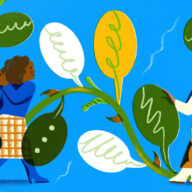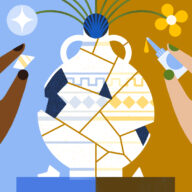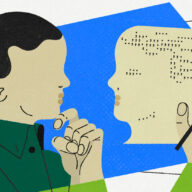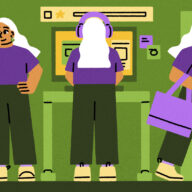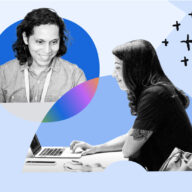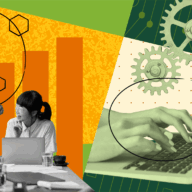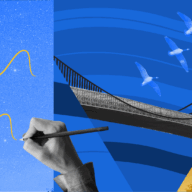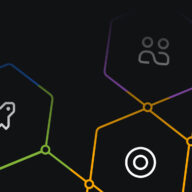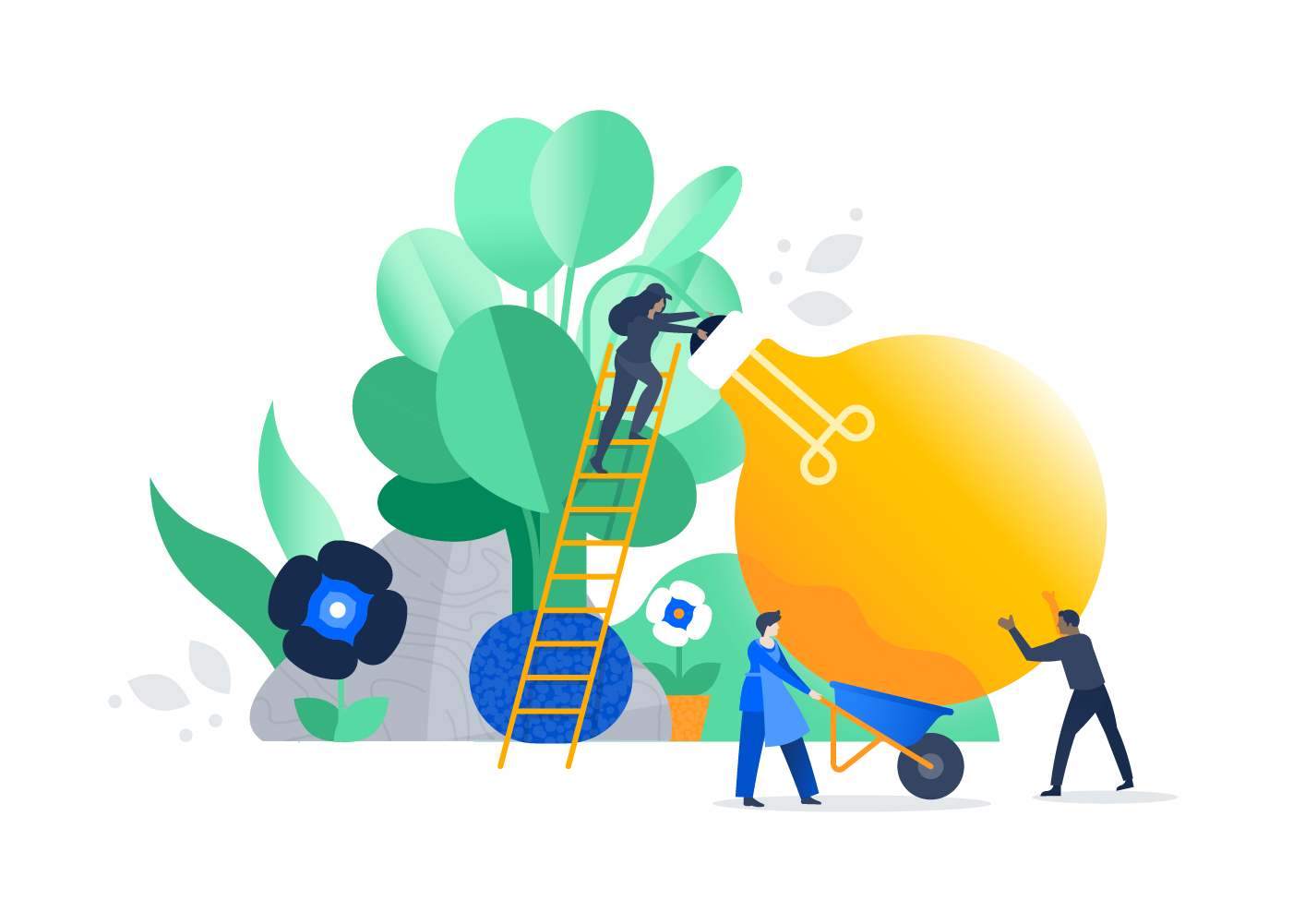Can industry events crack the diversity code?
From tech conferences to writers’ circles, event planners have a unique chance to foster belonging. But will it work?
When I started doing events we focused on things like the color of the tablecloths and whether we should have a plated lunch vs. a buffet. Today, we’re thinking about things like RFID badges that connect with the event’s custom mobile app, which connects attendees to content and to each other.
But there’s a whole other side to creating corporate events that immerse attendees in an engaging experience, and it has nothing to do with the latest tech.
Today’s best events – the ones that turn attendees into fans – are focusing on inclusion.
Considering inclusivity when planning corporate events isn’t just the right thing to do from a social justice perspective – it’s also good business. The increasingly sophisticated audiences span multiple generations, are diverse in just about every way imaginable, and are socially conscious. When we create a space where everyone feels like they truly belong, they respond in kind by becoming loyal champions.
Each year, Atlassian runs events that touch thousands of people from over 100 countries. Over the past two years, we’ve been on a journey toward more inclusive events and have made huge strides thanks to some relatively small steps.
Before you assume your company’s approach to events is too entrenched or your budget too small to make inclusion a priority, take a look at some of the tactics we’ve used. You might be surprised by how many are within your grasp.
Blind speaker submissions
Nothing makes an attendee feel more included than seeing people behind the microphone who look like them or share some aspect of their identity. In addition to actively encouraging women and people of color to submit talks, we hide the speaker’s name and company from reviewers to mitigate unconscious bias that might creep in.
Just as blind auditions have dramatically increased the number of women playing with professional orchestras, they level the playing field in the context of conferences. We also went a step further by making sure the selection committee itself was more diverse. After adopting this two-pronged approach, representation of women, people of color, and people from small companies amongst our speakers increased dramatically, with women making up 24% of our speakers. Clearly, there’s more work to do here. But we’re headed in the right direction.
Oddly enough, we’ve taken the opposite tack when it comes to choosing who is on stage representing Atlassian in our keynotes. While general sessions used to be the sole domain of our co-founders, we now hand-pick a broad array of Atlassians to share the stage and present their work. We want to showcase the full-team effort required to produce our software and give people from all across the company a time to shine.
Varied content consumption
Preferences for how we consume content and interact with each other are influenced by our learning styles, age, and personality traits (e.g., introvert vs. extrovert). You don’t have to be a mathematical genius to see how much potential variation you’re dealing with.
The good news is that planners can provide lots of options. At our marquee user conference, Atlassan Summit, we offer things like hands-on product demos, 1-on-1 meetings with our staff, a “support bar”, training, product feedback booths, interactive survey walls, industry-specific content, and a legendary conference party – in addition to the standard keynote, breakout, and lightening talk sessions.
Parents’ rooms
Caring for a baby is a big commitment, especially if you’re nursing. We feel parents shouldn’t have to rush back to their hotel room in order to have a private space to build a supply of milk for their child. So we provide a comfortable, discreet room with a refrigerator right in the event venue.
Gender-inclusive restrooms and pronouns
As an open company, we believe in creating a space where attendees can bring their full, authentic selves. For starters, everyone deserves to use a restroom they feel comfortable in, with no questions asked. Period.
Similarly, we offer the option to choose the pronoun you prefer to be addressed as and wear it proudly on your badge throughout the event.
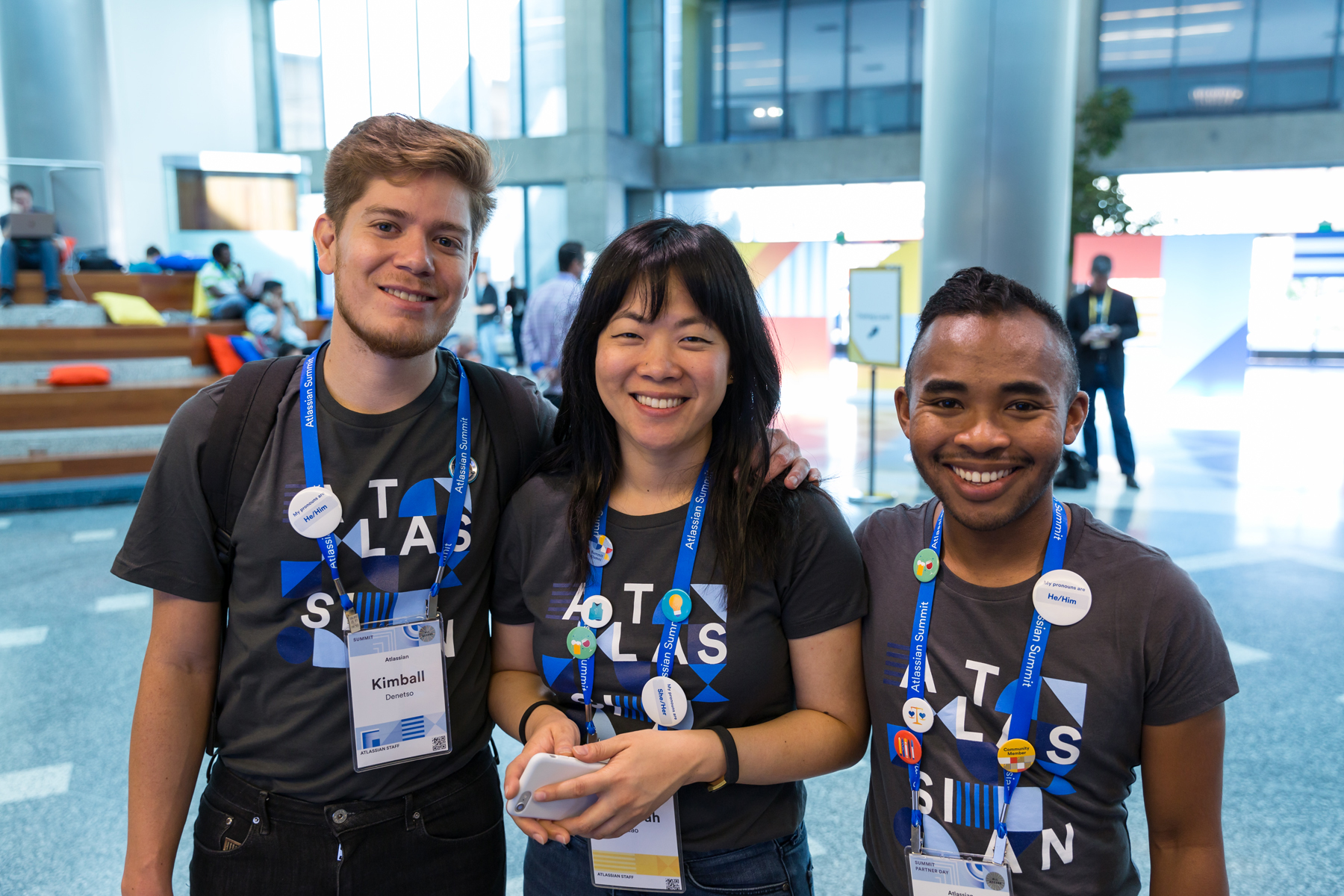
Swag of all shapes and sizes
We’re one of a growing number of companies that offer conference shirts in women’s cuts, as well as an expanded range of sizes. If you want people to actually wear them after the event, you can’t take a one-size-fits-all approach.
And who says your swag has to be a shirt, anyway? We’ve gotten great feedback from attendees about branded water bottles and socks. (Especially the socks.)
Prayer and meditation rooms
Staying engaged in your personal practices and beliefs during a hectic event can be hard. Making the time for prayer and meditation is up to our attendees, but we make sure there’s an appropriate space available for anyone to use.
Diversity in tech program
By now, it’s common knowledge that the tech sector is struggling with diversity, particularly along gender and ethnic lines. At Atlassian, we’re pushing hard to address issues around underrepresentation in tech – not just at our events, but in our recruiting and internal programs as well.
At each of our conferences, we run an early-evening program that encourages everyone to come together to learn about the barriers faced by underrepresented people in tech, and how to be a better ally. It includes a panel discussion with audience Q&A, followed by time for smaller breakout groups to discuss things like mentorship, balancing professional lives with family obligations, issues specific to women of color, LGBTQ-related topics, and many others.
And if you doubt whether a similar program would resonate at your event, consider that our diversity program has maxed out capacity every single time.
Social good
We’re aware of how fortunate we are to be able to produce these types of events, and feel compelled to pay that good fortune forward. At our most recent Atlassian Summit, we ran a campaign to support BeTheMatch – a non-profit that matches bone marrow donors to patients awaiting a transplant – that resulted in dozens of staff and attendees registering to become donors. At other events, we’ve supported non-profits like Room to Read, and rallied companies in the Atlassian ecosystem to join the Pledge 1% movement.
While social justice, charitable giving, and volunteerism aren’t what attract people to our events, we hear over and over what a huge difference these programs make in attendees’ experience.
Sustainability
Historically, corporate events haven’t done much around recycling and sustainable sourcing and we believe it’s time for that to change. From sourcing fair-trade shirts and coffee to choosing post-consumer recycled paper products to providing donation bins for unused hotel amenities, there are many ways for event planners to pitch in. Even small changes make a big impact.
In a recent survey of thousands of professionals across seven countries, 80% of respondents say they value diversity and inclusion, yet diversity fatigue is starting to set in. One way to re-energize our communities is by fostering a sense of belonging – and events provide an excellent opportunity for that.
We event planners talk a lot about “glocalization”: the process of applying global ideas in a local context. Diversity and inclusion is an area with massive glocalization potential. By taking small steps toward inclusion, we can transform our audiences into advocates and champions for both good global citizenship and our brands. And that, ultimately, is what we all want from our events.
. . .
Atlassian Summit 2018 is your chance to experience an inclusive event first-hand, and learn a ton about working better with your team to boot. Join us in beautiful Barcelona this September!

